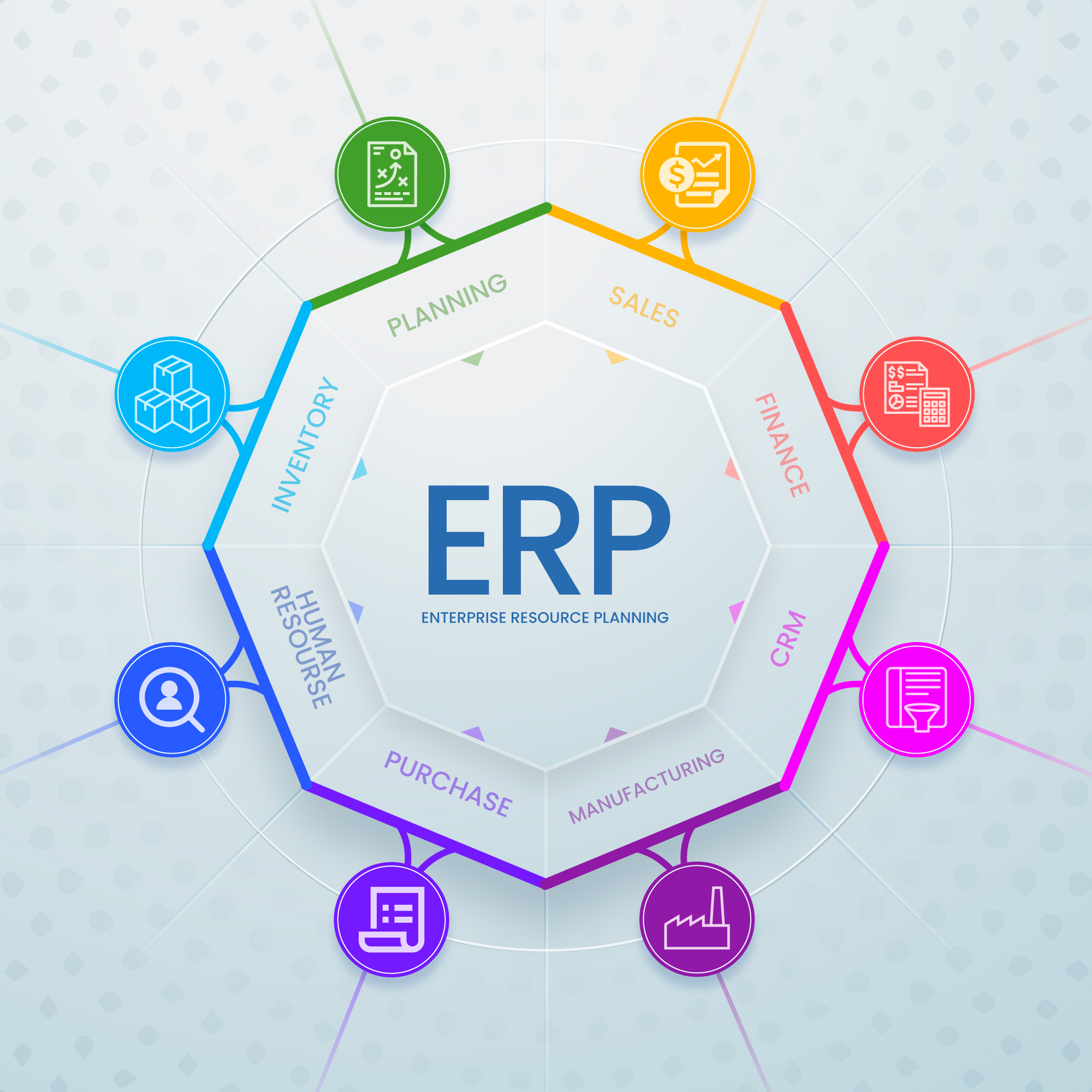
The Benefits of Implementing an Entity Resource Planning System
July 28, 2019, 02:05:00 PM EDT By Paul Efiong
In today's rapidly evolving business world, enterprise resource planning (ERP) systems have become a critical component for companies of all sizes. Enterprise Resource Planning (ERP) systems are comprehensive software solutions that help businesses integrate and manage their core operations in a streamlined manner. ERP systems have come a long way since their inception and now offer a range of benefits that can help businesses of all sizes and industries improve their productivity and efficiency. In this post, we will discuss the key benefits of implementing an ERP system for your business.
Cloud-based Software
One of the biggest benefits of ERP systems is that they are now available as cloud-based software. Cloud-based ERP software allows businesses to access the system from anywhere with an internet connection. This means that employees can access the system from home or on the go, which is particularly useful for businesses with remote workers or those with multiple locations.
Custom Software Development
ERP systems are highly customizable, which means that businesses can tailor the system to their specific needs. Custom software development is a key benefit of ERP systems because it allows businesses to create a solution that meets their exact requirements. This can help businesses to improve their processes and achieve better results.
Workflow Automation
ERP systems offer workflow automation features that help businesses streamline their processes and eliminate manual tasks. Workflow automation can help businesses reduce errors, improve efficiency, and save time and money. For example, an ERP system can automatically generate invoices, purchase orders, and other documents, which eliminates the need for manual data entry.
Data Management Solutions
ERP systems offer powerful data management solutions that help businesses organize and analyze their data. Data management solutions can help businesses make better decisions by providing them with accurate and up-to-date information. ERP systems can also integrate with other systems, such as customer relationship management (CRM) softwares, to provide a complete picture of the business.
Cybersecurity Solutions
ERP systems often contain sensitive business data, which is why cybersecurity is a critical consideration. ERP systems offer a range of cybersecurity solutions, such as encryption, firewalls, and access controls, to help businesses protect their data. Implementing an ERP system can actually improve a business's cybersecurity position, as it provides a centralized system for managing security.
Digital Transformation Services
ERP systems are a key component of digital transformation. Implementing an ERP system can help businesses modernize their processes and move away from outdated systems and manual processes. ERP systems can help businesses achieve digital transformation by providing them with the tools they need to automate processes, integrate systems, and streamline operations.
Improved Productivity
One of the most significant benefits of an ERP system is improved productivity. By automating routine tasks, such as data entry, invoicing, and inventory management, an ERP system frees up employees' time, allowing them to focus on higher-level tasks. Additionally, ERP systems provide employees with real-time access to critical information, making it easier to collaborate and make informed decisions quickly.
Operations
ERP systems are designed to integrate and streamline business operations. These systems provide businesses with a single, centralized source of information that can be accessed by multiple departments. This eliminates the need for redundant data entry, reducing errors, and improving the accuracy of relevant information. ERP systems can also help businesses manage their supply chain by providing real-time visibility into inventory levels, supplier performance, and delivery times.
Improved Financial Management
ERP systems provide businesses with a comprehensive financial management solution that can help them manage their finances more effectively. These systems offer features such as automated invoicing, billing, and payment processing, as well as financial reporting and analysis tools. By streamlining financial processes, businesses can reduce the risk of errors, improve cash flow, and make better-informed financial decisions.
Enhanced Customer Service
ERP systems can also help businesses provide better customer service. By providing employees with real-time access to customer data, such as purchase history and order status, businesses can quickly respond to customer inquiries, provide accurate information, and resolve issues faster. Additionally, ERP systems can help businesses improve their sales and marketing efforts by providing insights into customer behavior, preferences, and trends.
In today's fast-paced business world, ERP systems have become an essential tool for businesses of all sizes. These systems provide businesses with the tools they need to manage their operations more efficiently, streamline processes, and make better-informed decisions. With benefits such as improved productivity, streamlined operations, improved financial management, and enhanced customer service, implementing an ERP system can help businesses stay competitive and thrive in the market.



